Over the years, humanity has sent a number of people into space to explore and document the far heavens. We’ve seen pictures, videos, and accounts from people that have been to space. But it’s still pretty difficult to imagine life out there, isn’t it?
Tacoma, coming sometime in 2016 to PC, PS4 and Xbox One, is the second game from Fullbright, the Portland-based studio behind 2013’s Gone Home. It tells the story of a crew that works inside a lunar space station. You star as Amy Ferrier, a technician hired to work on the vessel, which is also named Tacoma. I had a chance to play about 30 minutes of Tacoma last week in San Francisco, and so far, the game feels ambitious — especially when compared to Gone Home, in which you primarily walked around exploring a single house on earth.
The Tacoma is a huge station, and even the individual rooms are larger than anything you’ll see in Gone Home. “We [wanted] the scale of the experience to be a little bit bigger,” Steve Gaynor, co-founder of Fullbright, told me. The game feels grandiose, too. Space exploration is hard to divorce from the idea of exceptionalism — it is, after all, one of the greatest achievements of humankind — and the architecture of the Tacoma itself embodies that ideal. Some parts of the Tacoma resemble a lavish hotel, or exhibit that classic art deco opulence that BioShock is famous for.
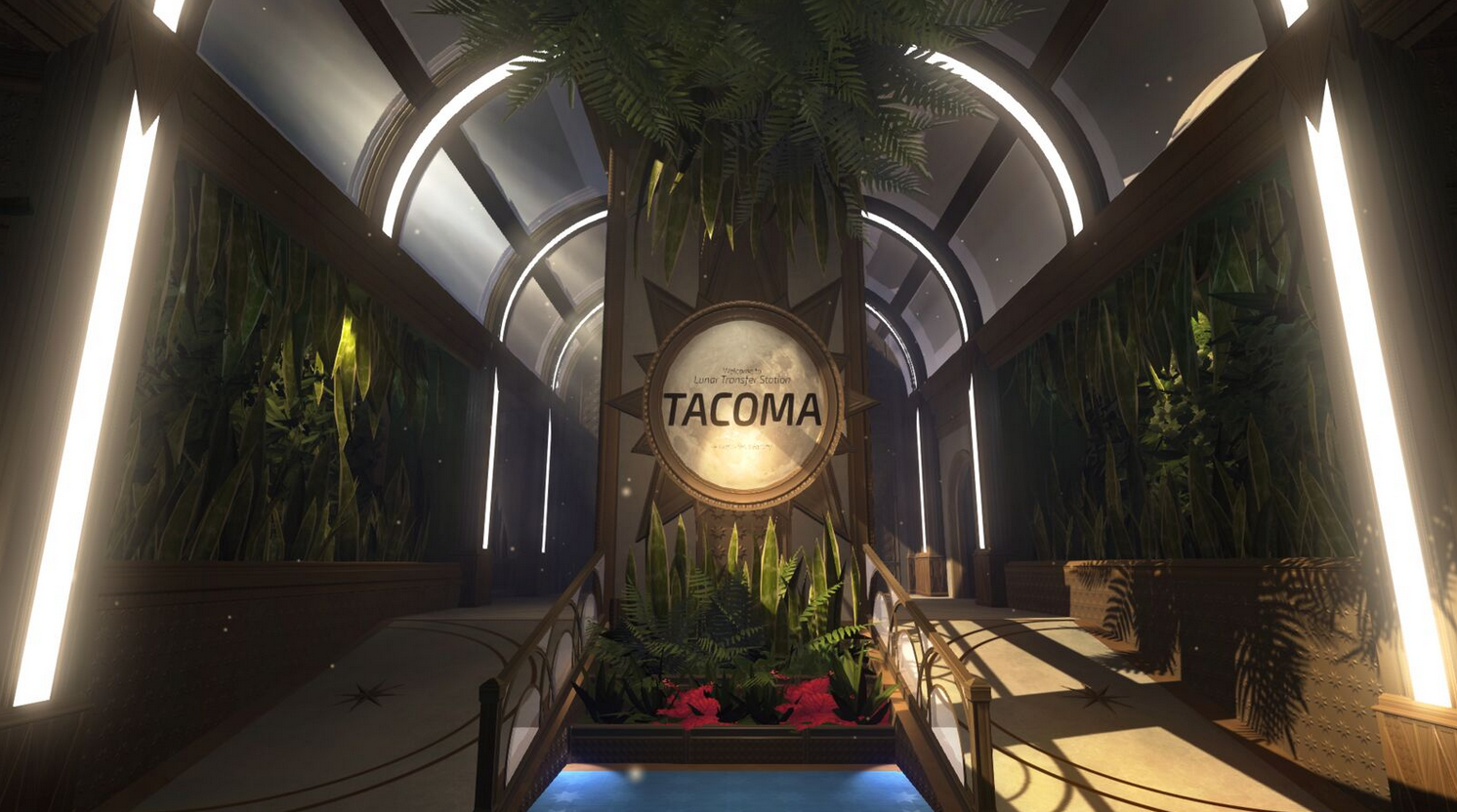
It’s difficult to shake a sense of uncertainty aboard the Tacoma. Before you even board the station, you are told that everything inside the Tacoma is monitored and recorded. You can’t go on the ship without consenting to that, which of course makes you paranoid about the corporation that hired you. What makes the game particularly ominous, however, is the ship seems abandoned when you get there. You’re left wondering just where the hell everyone went, and whether or not something terrible happened on the ship before you got there. And, unlike Gone Home, this tinge of horror is no fake-out.
“There is more openly some kind of ‘event’ that is happening,” Gaynor said. “There’s some kind of sabotage or emergency.”
Gaynor notes that unlike Gone Home‘s protagonist Katie, Aimee is a more active protagonist. Yes, you’ll still walk around, inspecting objects LA Noire style to learn more about your environment. But you are also a technician — which means you have the ability to fix stuff around you. Puzzles seem to be built around that idea. At one point during my demo, I came across a small distressed bot who was stuck. I helped the bot return to its normal circuit, and it happily went right back to work. Later, I repaired a console on the fritz.
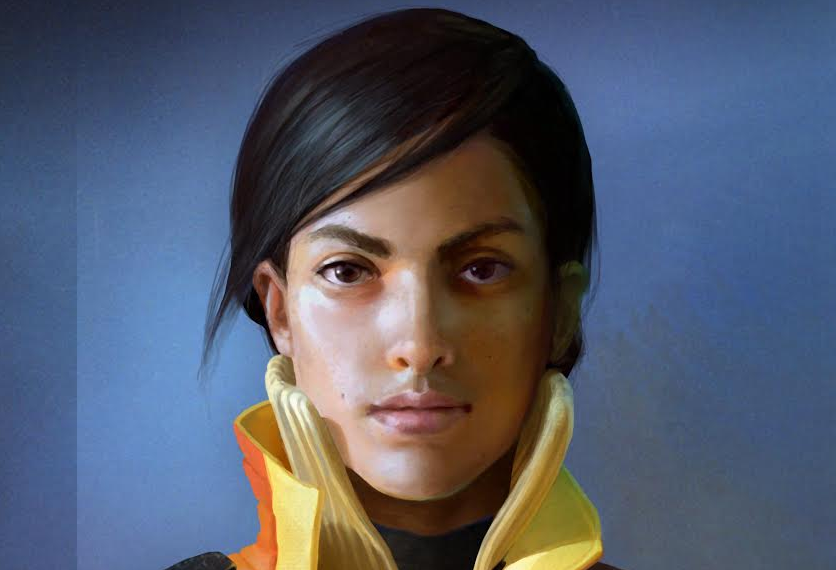
Aimee is more active in a literal sense, too. One of the central mechanics in Tacoma is that you can vault from surface to surface using magnetic boots. The station has been designed with this in mind, and has areas that sprawl in every direction. This design made Tacoma feel a little bit like a navigational puzzle. Better, it made the Tacoma feel like it allowed me to move around in ways that wouldn’t be possible on Earth.
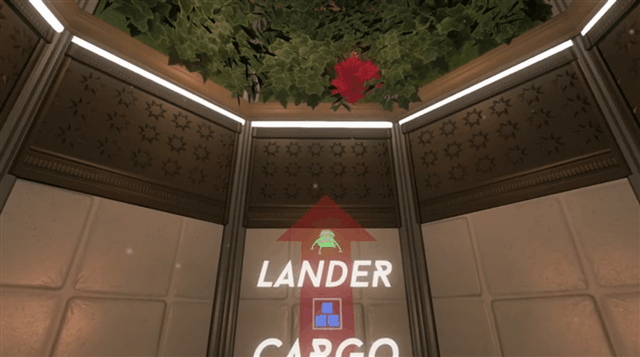
As you explore, you learn more and more about the crew of the Tacoma via virtual reality recordings. The station is littered with scenes that you can replay at will, complete with holographic representations of the crew. Think of them like audio logs, except you can actually see how people carry themselves during the recording.
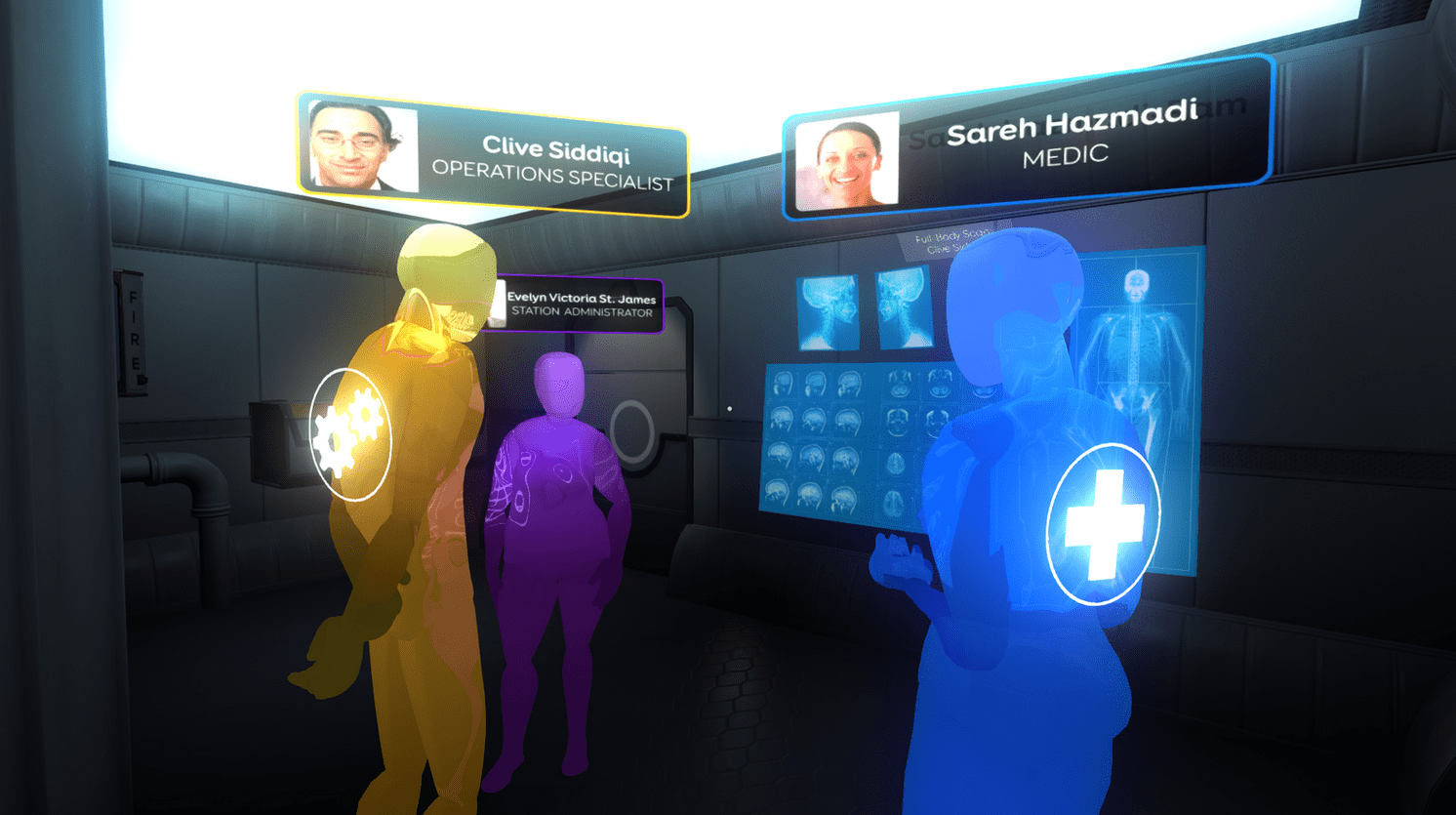
At first, these recordings seem just like a Game-Arse Thing, Tacoma’s way of fulfilling the conventions of a narrative game. But, as I made my way forward, I started to feel some unease about these recordings, too. Surely these logs aren’t viewable by most of the crew? That would be shitty, no? To just be able to view everyone’s private conversations whenever you want?
Well, as it turns out, the player’s ability to see these things isn’t normal, either. As far as I can tell, your access to these recordings are the work of Odin, the station’s artificial intelligence. When you initially get on the ship, Odin is offline. Someone actually went through the trouble of turning Odin off, and then tampered with the evidence — the hologram of the event has no ID, is obscured. The question then becomes: is there a reason for that? Is there something about Odin that we don’t know, a reason why someone on the crew would turn him off?
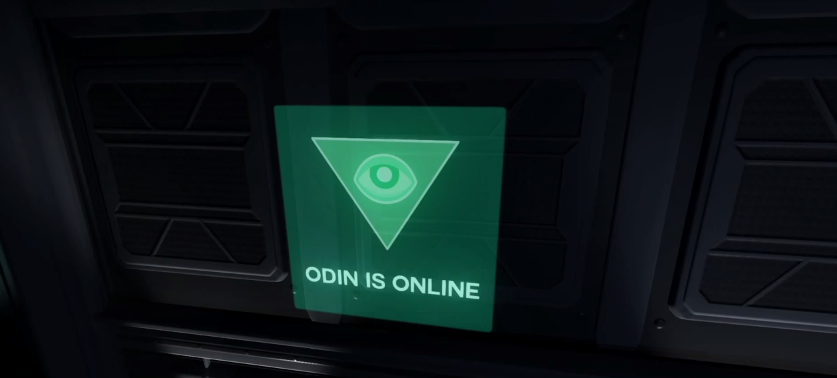
“Part of the game is trying to figure out what Odin’s capabilities are, and how much consciousness he has,” Gaynor said. “He’s kind of like a Siri.” Siri on steroids, that is.
Gaynor compared Odin to Google, and its ability to track us at any given moment in order to give us targeted ads. We are assured that the information isn’t being shared with anyone, and it can even be useful to be tracked like that,. Still, it’s kind of uncomfortable to know it is happening. I also recognise that it’s easy to distrust an artificial intelligence, especially after being primed by films like Alien. Odin can in fact be useful! What if, for example, there’s a crewmember who has been incapacitated somewhere — and nobody knows about it? Odin would be able to inform the crew.
At another point during my demo, I saw a conversation where Odin picks up on a crewmember’s heart palpitations. Dutifully, Odin tells this crewmember about their condition — except it means that this person cannot continue to serve the Tacoma. Is it possible that Odin could be incorrect? Did Odin perhaps want to get rid of this crewmember for some other reason? Or is it possible that this crewmember went berserk after finding out the bad news, and THAT’S the reason why everything is messed-up on the Tacoma? I didn’t get far enough to find out, but I’m intrigued by the mystery.
I’m also excited by the stories that Tacoma wants to tell. Gaynor mentioned that research for Tacoma has lead Fullbright to talk to NASA in order to find out what life in space is actually like. Right now, they’re trying to talk to someone who lives on the International Space Station, because they want to get a personal account of the experience. To supplement that, Fullbright is looking at other remote areas with similar jobs — like living in a research facility in the arctic, or being underwater in a submarine with a crew. Gaynor says that isolated groups of people like that form interesting societies and dynamics, and you see that reflected in the crew of the Tacoma as well. Viewing the VR holograms around the ship, it’s easy to get sucked into the day-to-day drama of the crew. I’m looking forward to learn more about them.
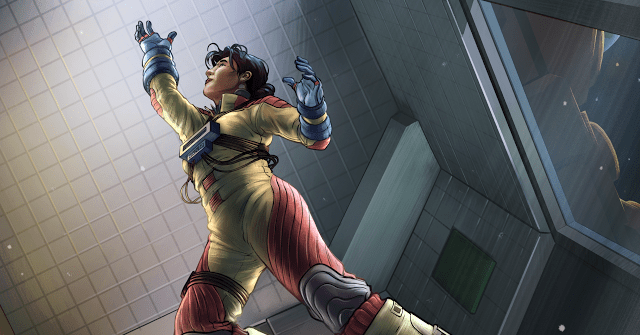
Comments
5 responses to “A Game About A Space Station AI That Monitors Your Every Move”
This article gives me a strong System Shock vibe. Much stronger than BioShock ever did.
Same I was thinking both System Shock and Martian Gothic.
I’m surprised the comparison wasn’t made at any point, it sounds quite similar.
Remember that Gaynor worked on one of the BioShock 2 levels (and I believe also did some work on BioShock Infinite).
BioShock is essentially a retelling of System Shock 2 already anyway. Combat difficulty was tuned down and Inventory Tetris was replaced by RPG-lite stat allocation (and “The Illusion of Choice” ludo-narrative meta reference).
I can’t imagine Tacoma being anything more than a retelling of BioShock – except on a space station, and with Artificial Intelligence(s). Combat will probably be diluted further, or non-existent, and replaced by puzzles. Hopefully puzzle difficulty gets a sharp increase compared to Gone Home but I think Fullbright tend towards “everybody should be able to reach the ending no matter what”.
Abandoned station, potentially sinister onboard AI, video logs of crew members, how is this not a spiritual successor to System Shock 2 ?
Not that I’m complaining, mind you. I loved SS2 and still rate it as one of the best games I’ve played.
Remember Citadel.